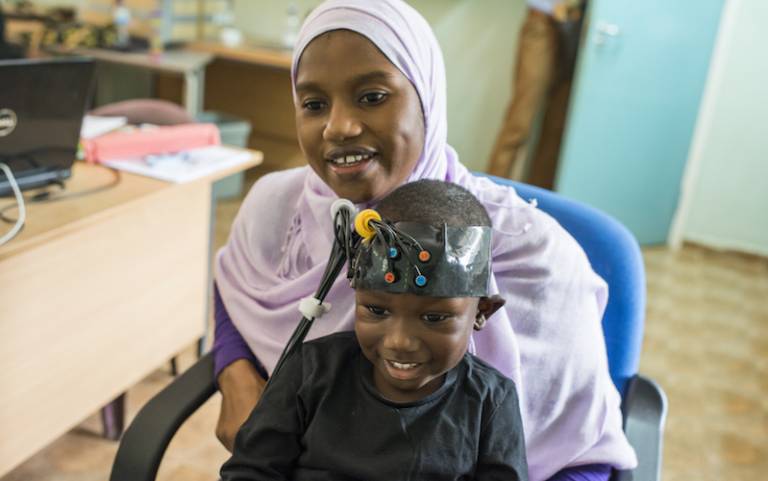Creating a brighter future for the world’s poorest children
The Brain Imaging for Global Health (BRIGHT) Project is providing the first-ever brain imaging of infants in Africa to understand and lessen the impact of poverty and malnutrition on brain development.

During the first 1000 days of life the brain undergoes its most rapid development. Lack of essential nutrients, and exposure to infectious diseases, pollution and poor living conditions in these early days, weeks and months of life create a toxic environment for the developing brain which can have long lasting consequences well into adulthood.
Current estimates suggest that one third of the world’s children living in low and middle-income countries are failing to reach their developmental potential.
The BRIGHT project, led by Professor Clare Elwell (UCL Medical Physics & Bioengineering) and funded by the Bill and Melinda Gates Foundation, is tackling this problem by using an innovative brain imaging technology called near infrared spectroscopy (NIRS). This low cost, portable device uses light to assess brain function and is ideally suited to studying young infants.
Data is being collected from over 200 Gambian infants in the first study of its kind to track development from birth to the infants’ second birthday.
The project is delivering “brain function for age curves” – similar to the growth curves most parents are familiar with – which are being used to chart how and when malnutrition and other factors impact the brain.
Armed with this information, researchers will identify nutritional and other interventions specifically designed to protect and save the brains of the world’s poorest children.
Links
Image
Credit/Source: BRIGHT Project
 Close
Close

